Original Article Here by peg1014

When you see Professor of Music Theory and Composition Jonathan Santore walking around town, he’s likely not just getting fresh air. The co-leader of Plymouth State’s Visual and Performing Arts Academic Unit is probably creating music in his mind, or maybe planning coursework for a newly approved BA program in digital music production and entrepreneurship.
“We all picture composers with a quill pen, sitting at a piano, but I do my best composing when I’m walking,” he says. “I tell my students that everyone has a voice recorder app on their phone and to use it in composing. If I have a piece going, I walk more, pacing around, using my own voice app.”
For 28 years, Santore has been forming Plymouth State students’ perceptions about composition and musical structure, and training students’ ears. He has also worked earnestly on his own compositions, creating pieces like “Two Letters of Sulpicia,” which he wrote in 2011 for students Jennifer Fijal-Brevik ’11, a mezzo-soprano, and Molly Finkel ’12, a bassoonist.
Not long after the piece was performed, an artistic collaborator with ties to PSU, Emily Jaworski Koriath, asked Santore if he was interested in offering her a digital piece for a new album she was creating. Santore proposed transforming “Two Letters” into a piece with electronic accompaniment; the successful result is on Koriath’s new Naxos release, “These Distances Between Us,” recently reviewed in Opera News.
Santore was thrilled to be mentioned in the esteemed, traditional publication, especially in the context of digital composition, as it dovetails so well with the new musical era that he plans to focus on when the new Cluster major debuts this fall. “This recognition signals where we need to be,” he says. “Those of us who come from the traditional acoustic background need to bring acoustic and digital music practice together and not have one bend to the will of the other but acknowledge they each exist.”
Through his work in creating the new degree offering, Santore is responding to many musicians of today—digital-first musicians, who may not know how to read music but certainly know how to create rich orchestral sound, with a range of instruments via digital audio workstations on computers.
Santore believes that Opera News lends a vote in support. In its review of Santore’s work on Koriath’s album, the journal said, “The mostly low-register synthesized sounds are remarkably effective in summoning the first century BCE author’s ancient world. Set to Santore’s own free translation … both songs are by turns contemplative and ecstatic.”
Santore came to PSU with a PhD in music and a master’s in music composition, and his work has been in traditional acoustics—chorus, band, orchestra, and choral works. “My interest in digital-first musicians started about 15 years ago when students were creating complex, interesting music with little knowledge of notation,” he says. “I thought it was interesting and started exploring and getting up to speed.”
What Santore loves about composing is communicating emotion in a non-verbal way. Each semester, he teaches four to five courses. “I love to see the light come on and to help students make connections they haven’t yet made,” he says.
Recently, a young person came to see him to discuss doubts about creating music. “The student came back not long afterwards, having written a beautiful, fully formed composition, and it was amazing and delightful to find the pieces of advice I had offered were so helpful.
“I see my job as being a more experienced set of ears,” Santore continues. “I’m not interested in imposing taste or determining the criteria for what they think is good music. I’m interested in helping them develop those tools for themselves.”
Santore’s wife, Marcia, is a constant inspiration and support. When he is not spending time with her—or walking—he likes to read and play poker with friends. Music is largely front and center. “Music should always be a journey of the heart and intuition,” he says. “My goal in my teaching is to show students that their brain can help their hearts and their intuitions along in the journey.”
Background on the new BA in digital music production and entrepreneurship
